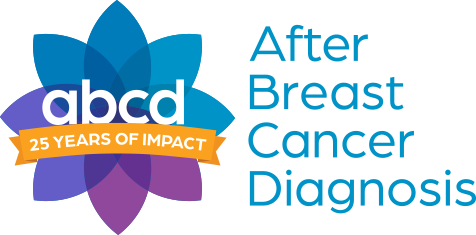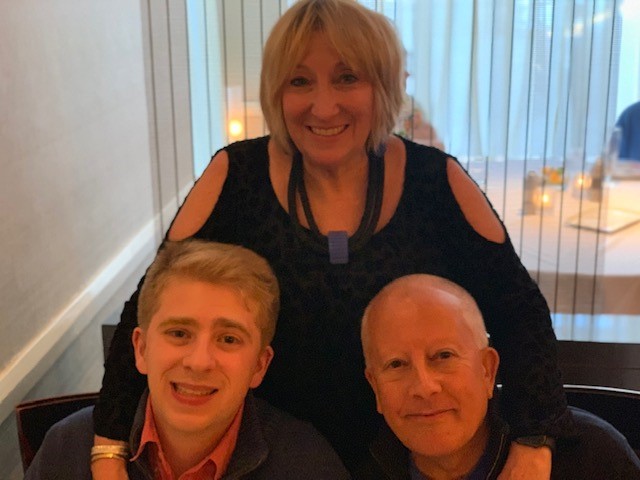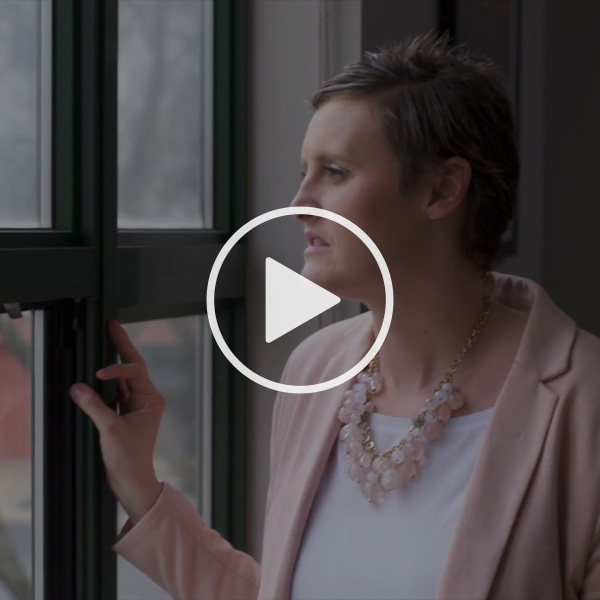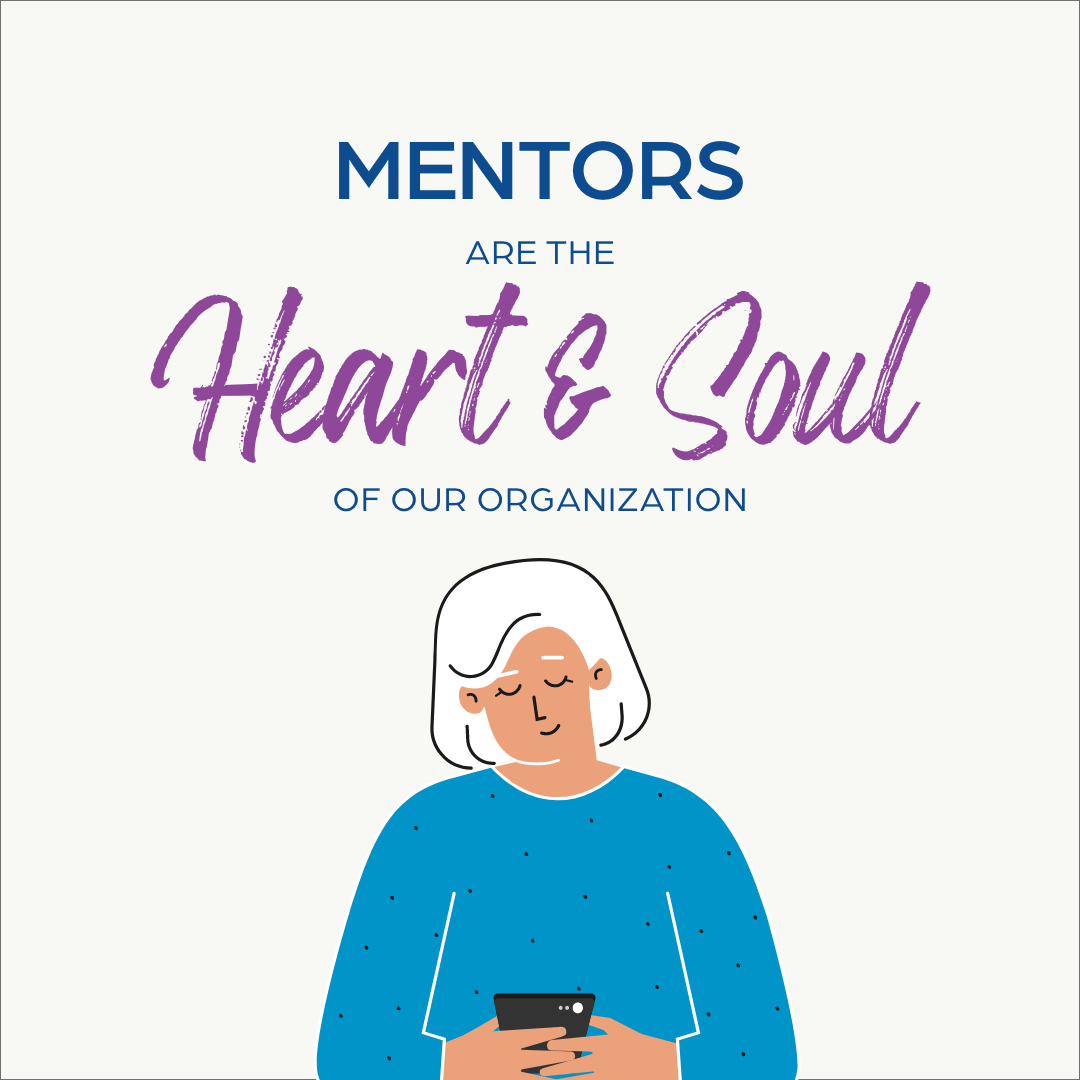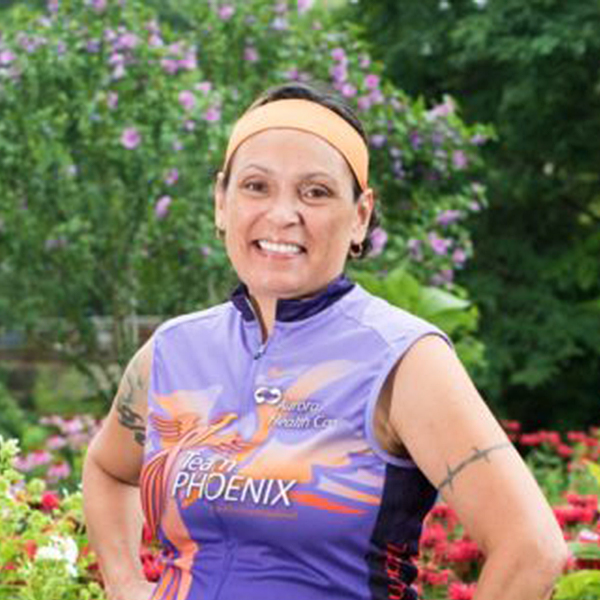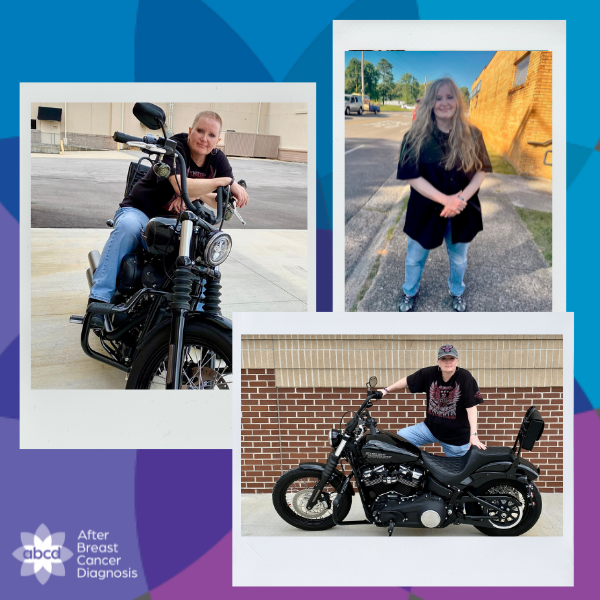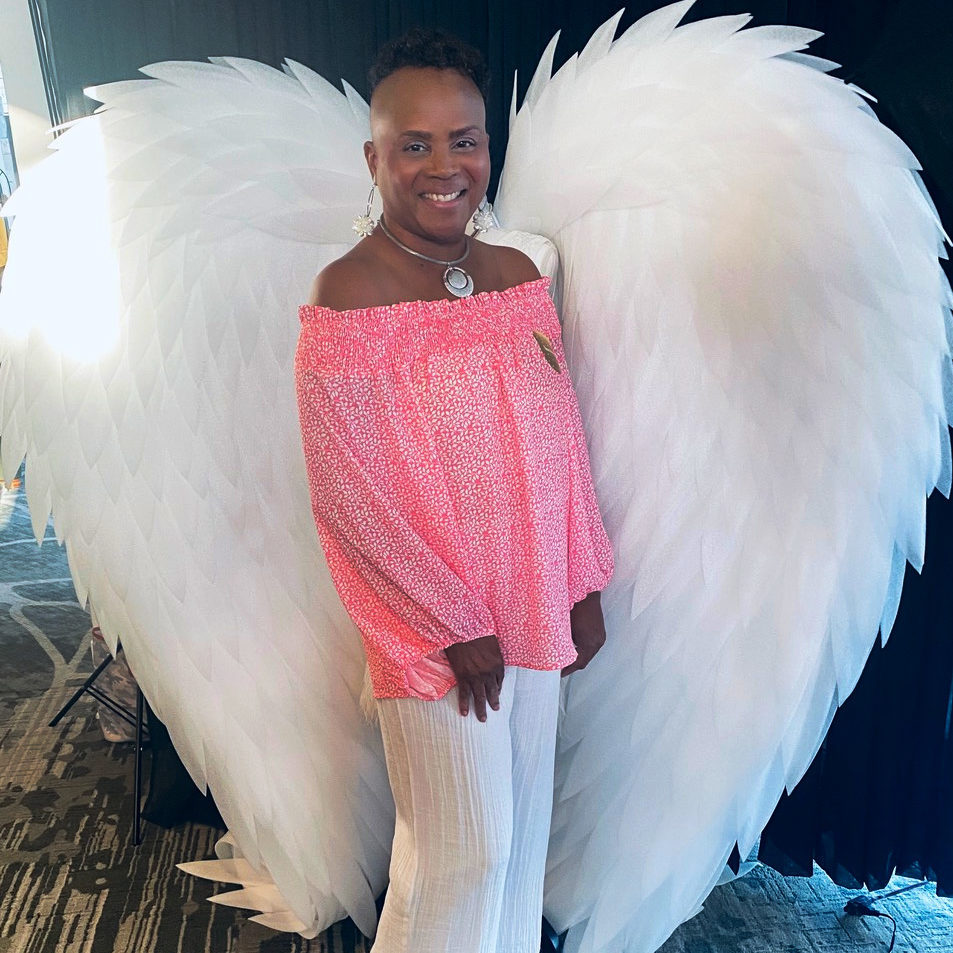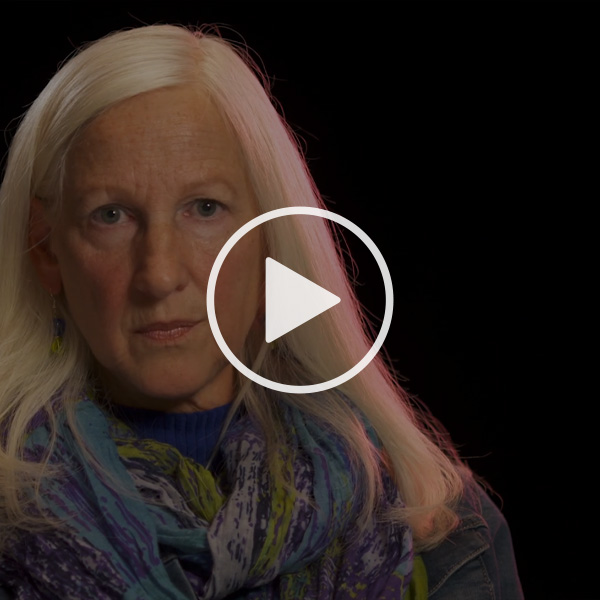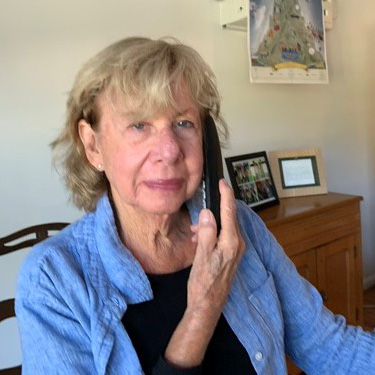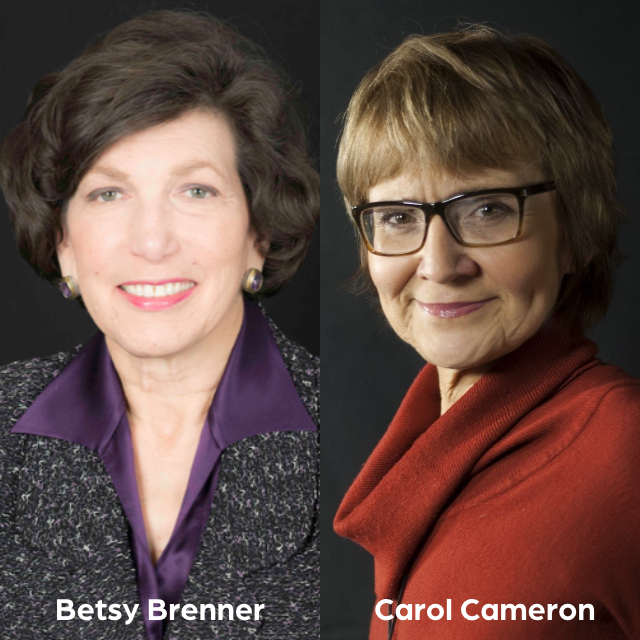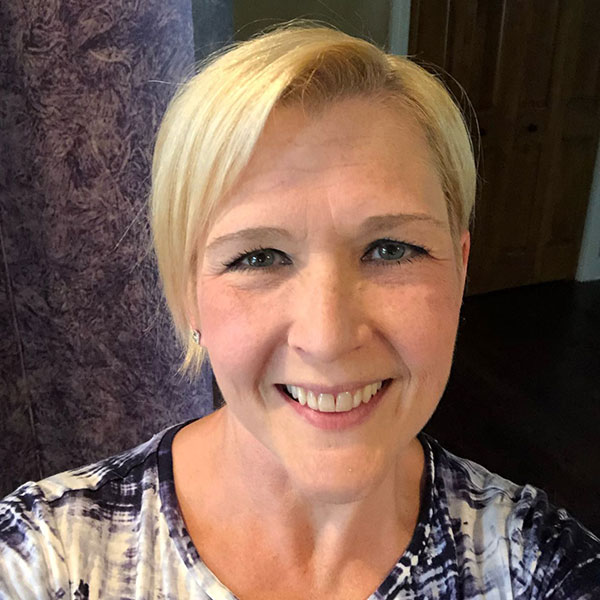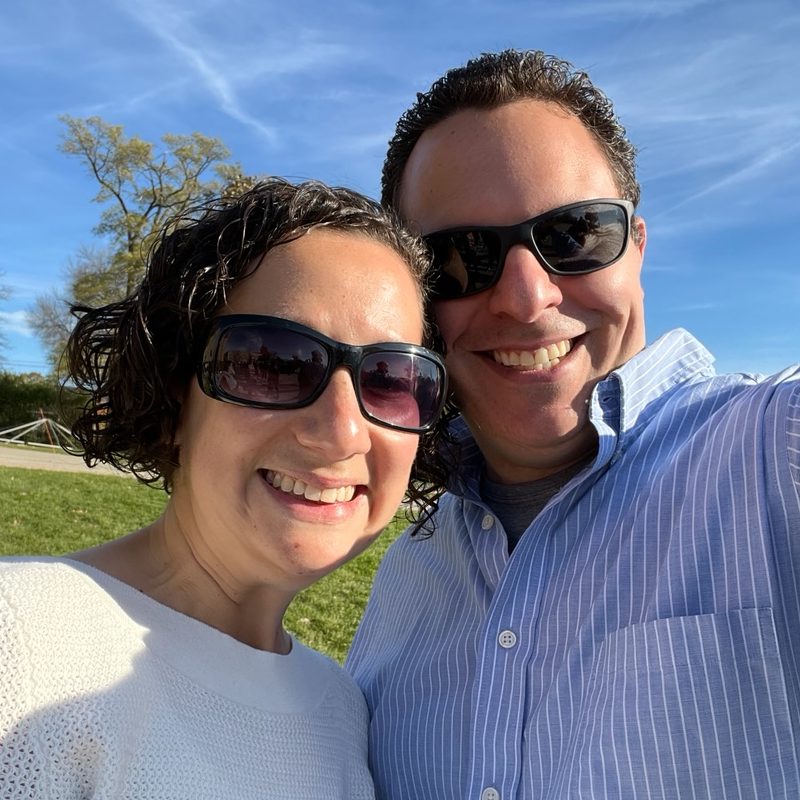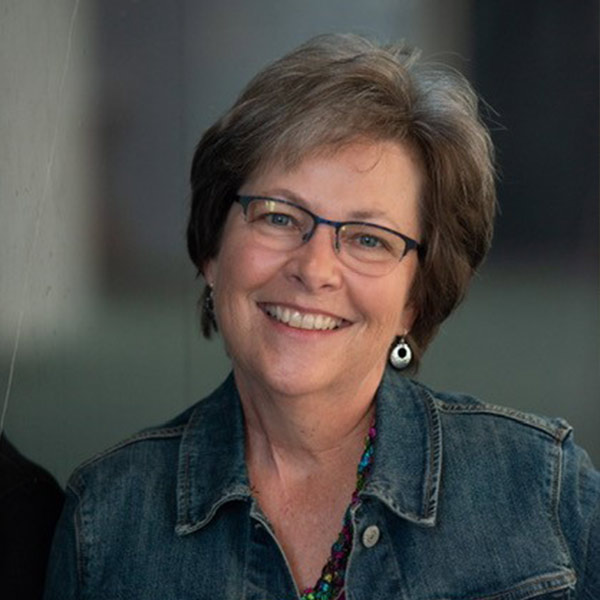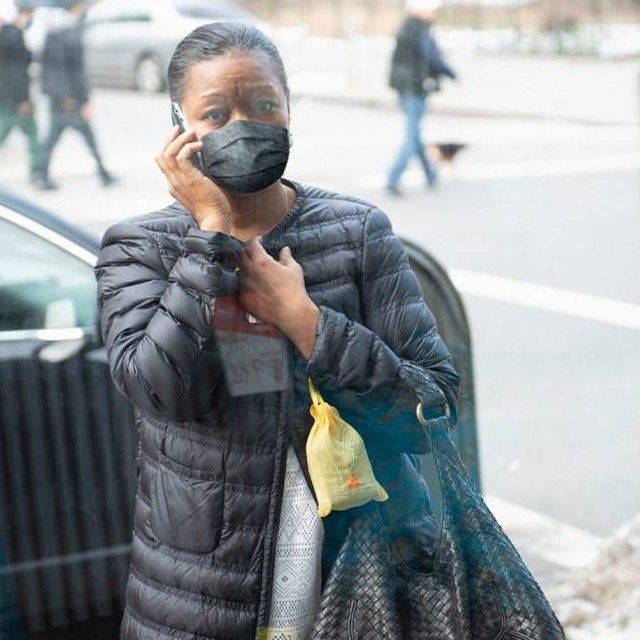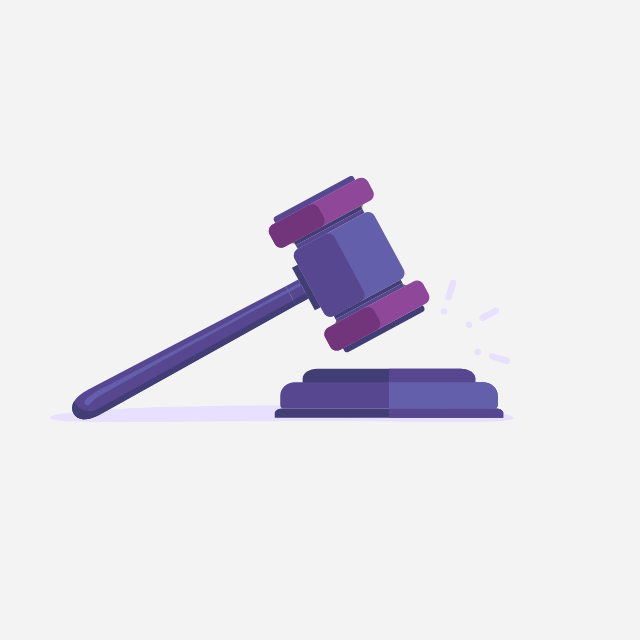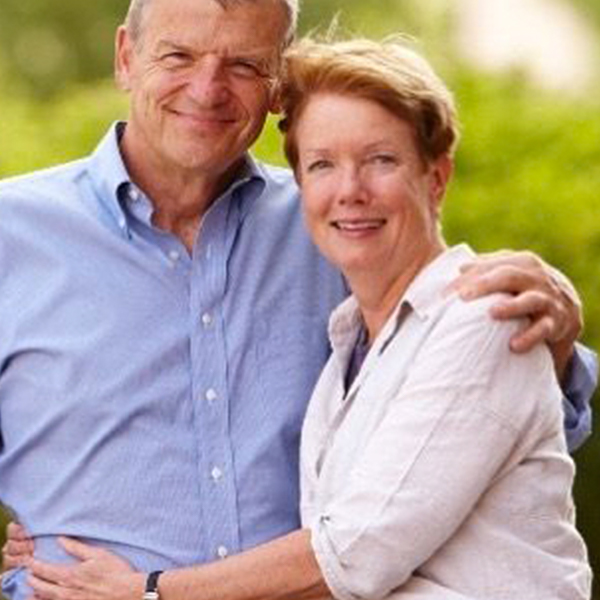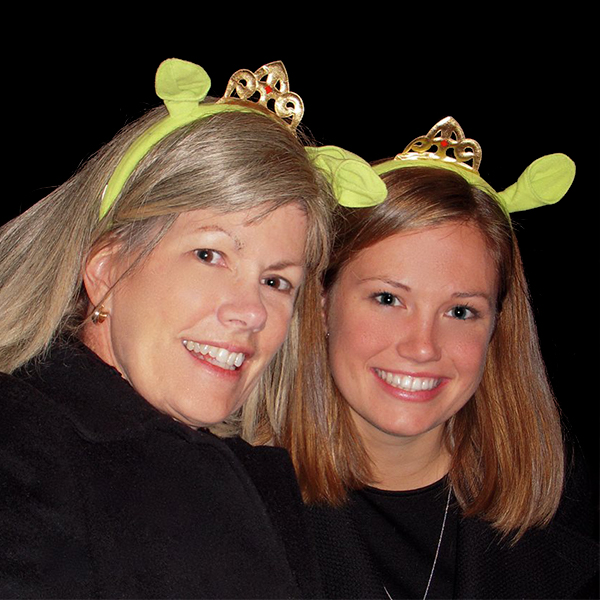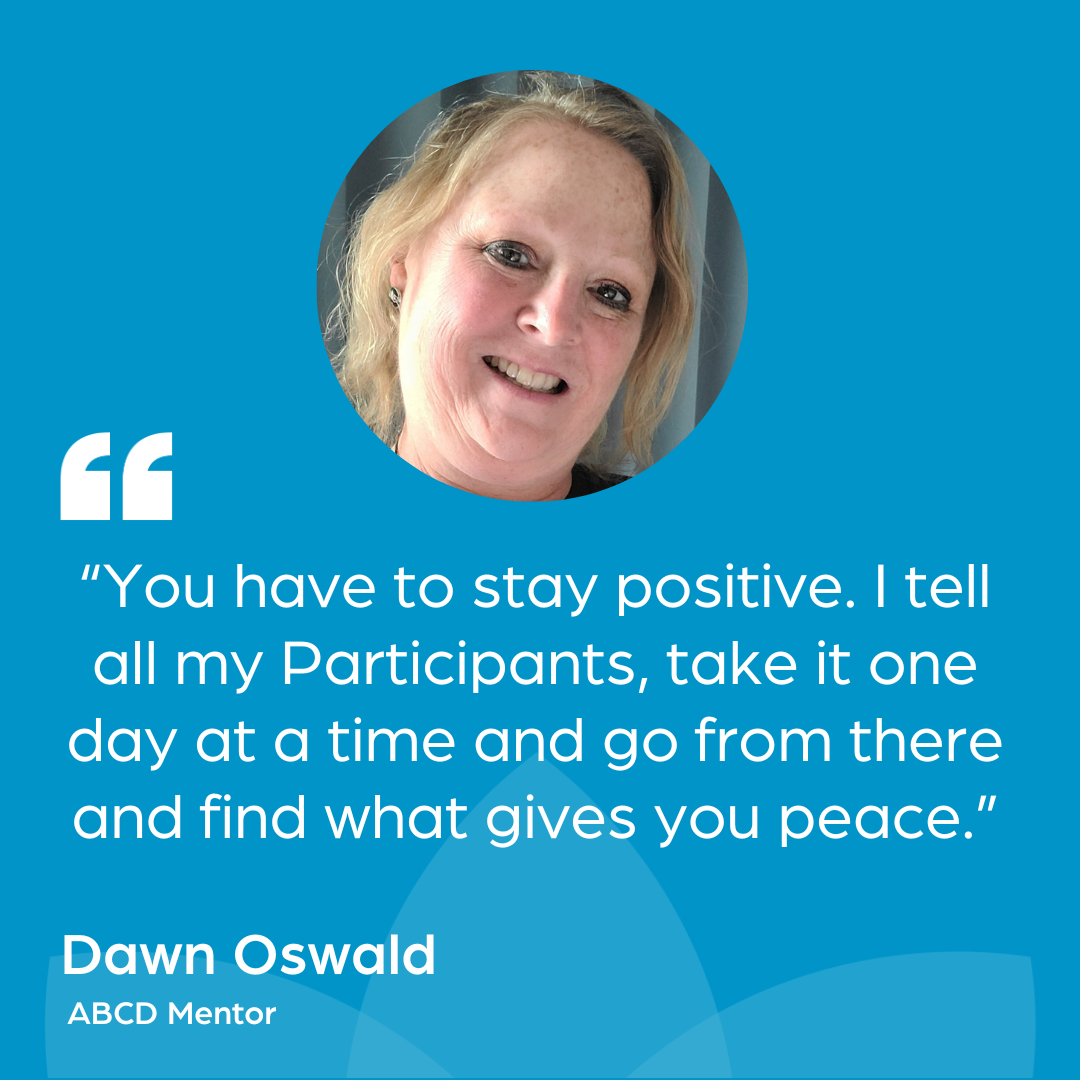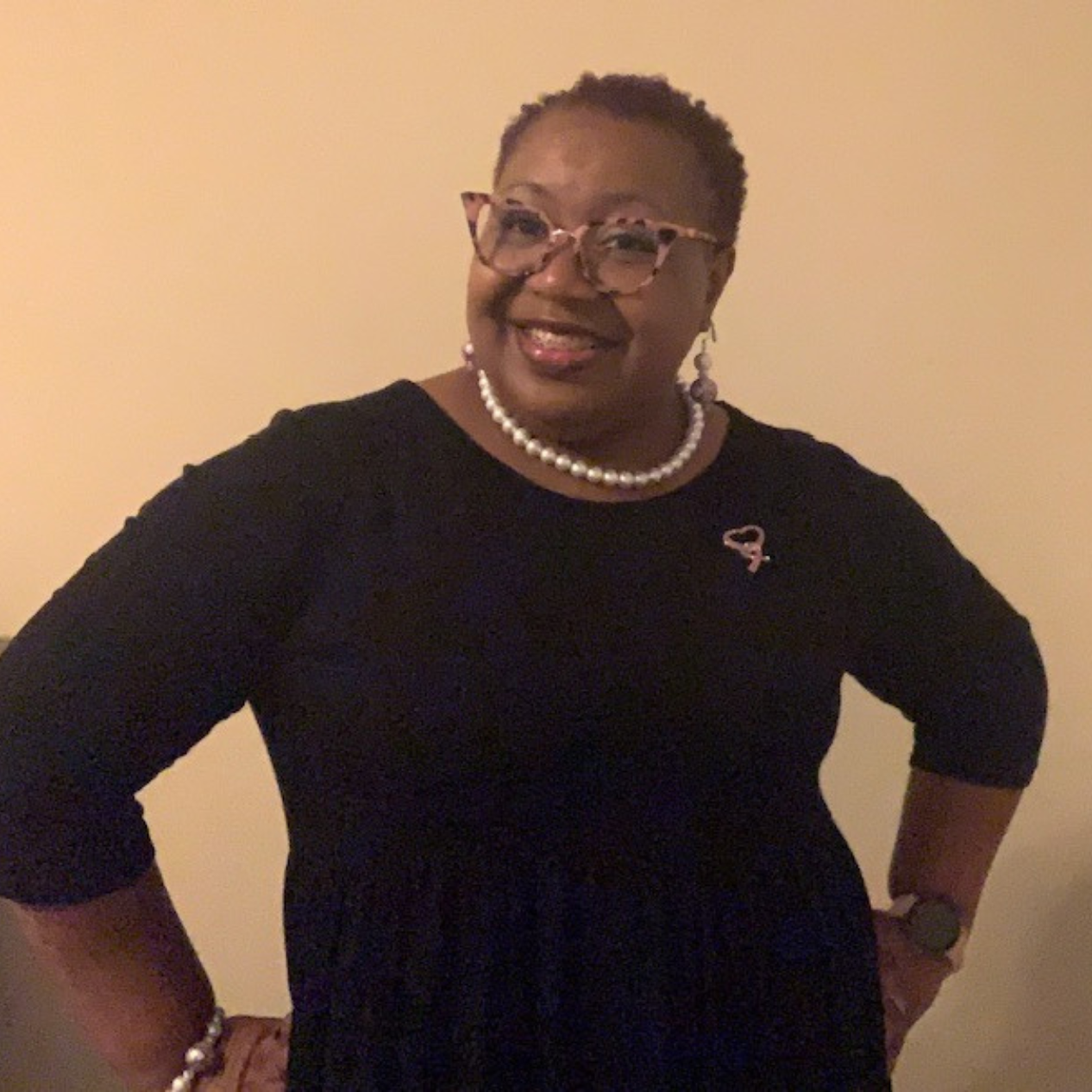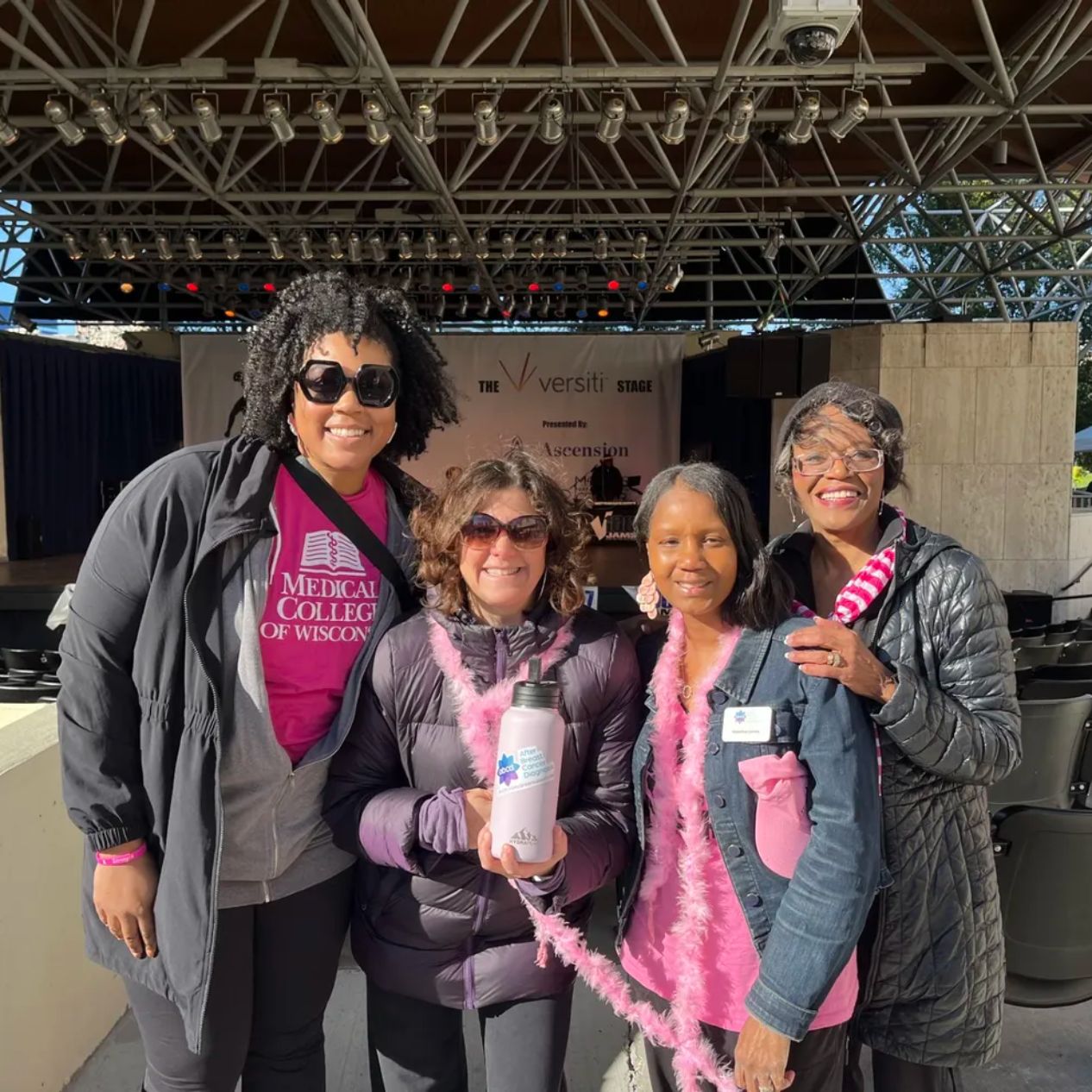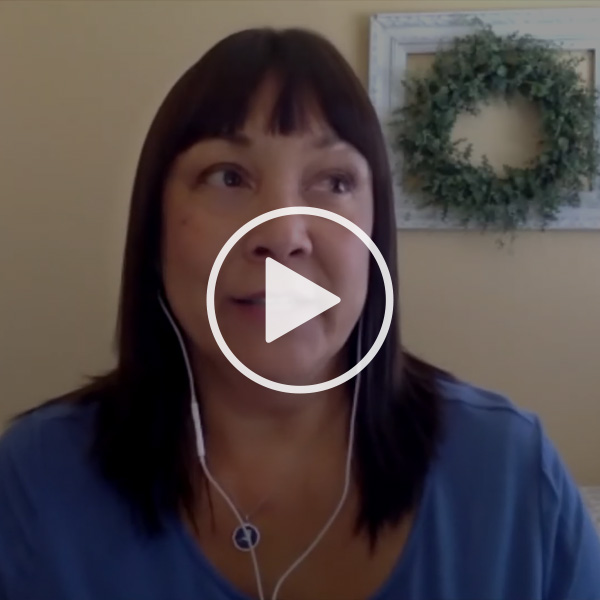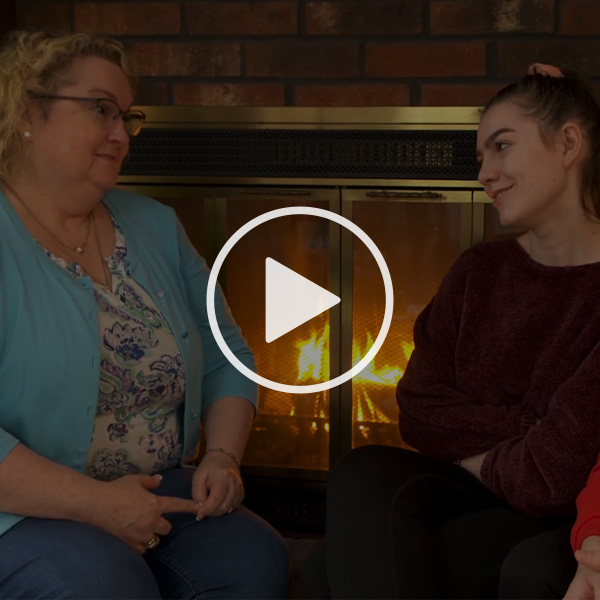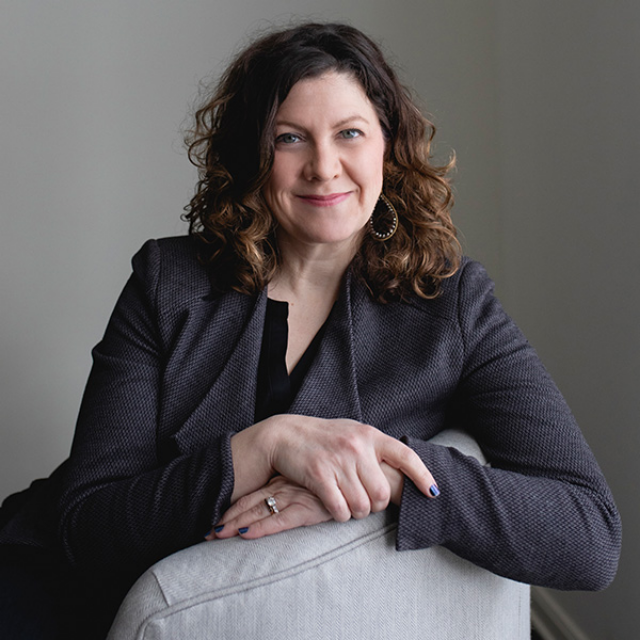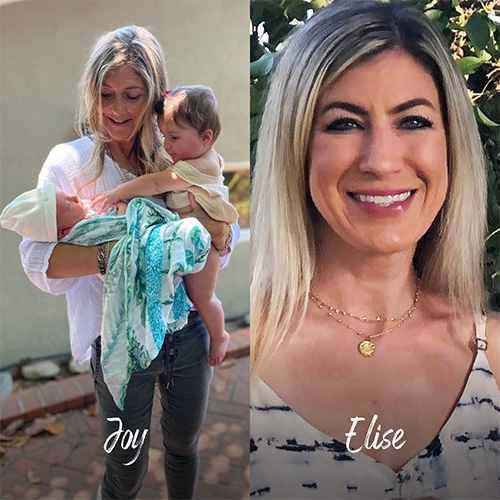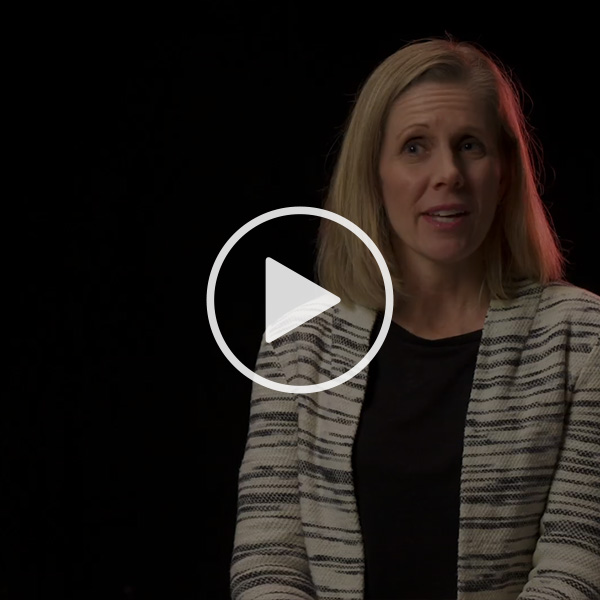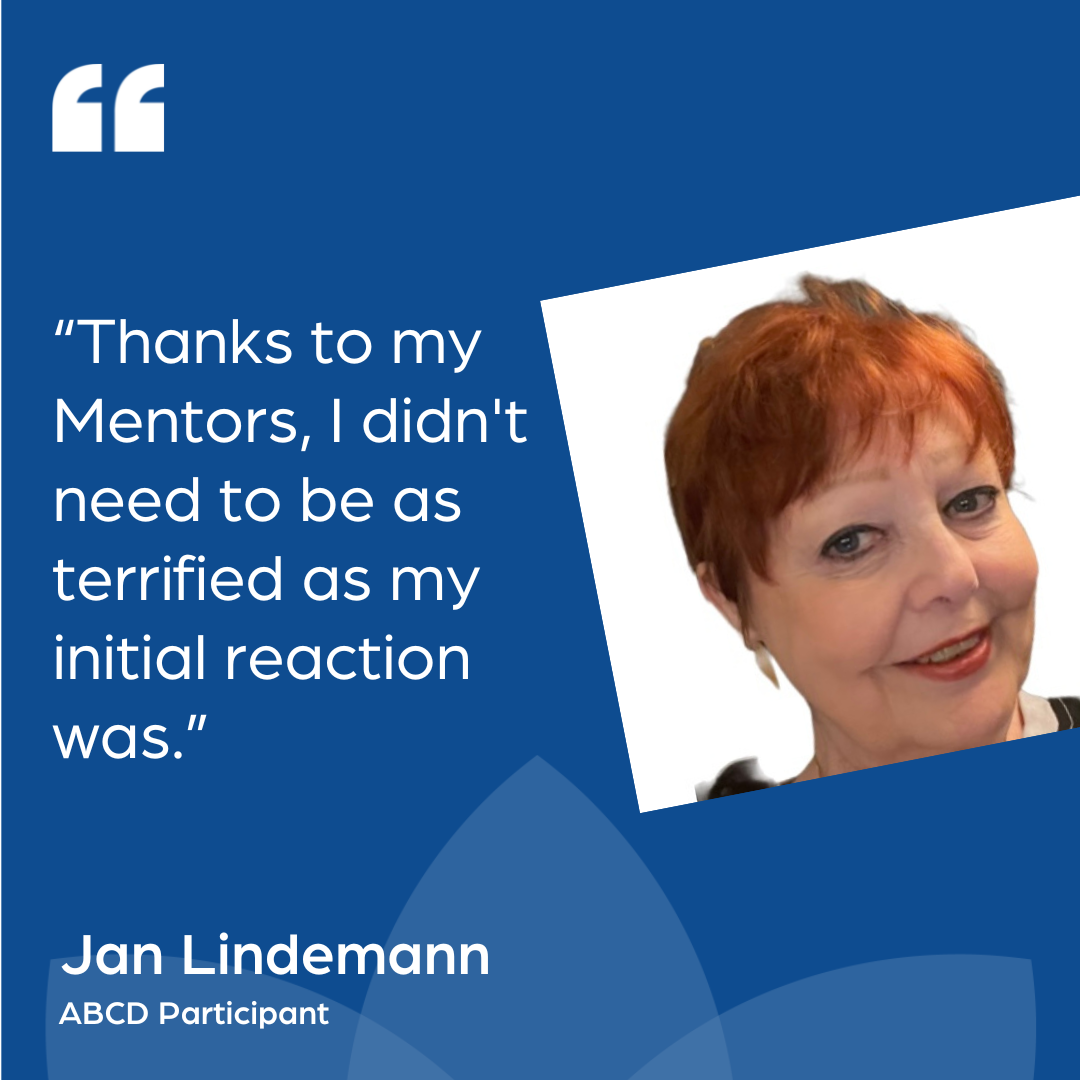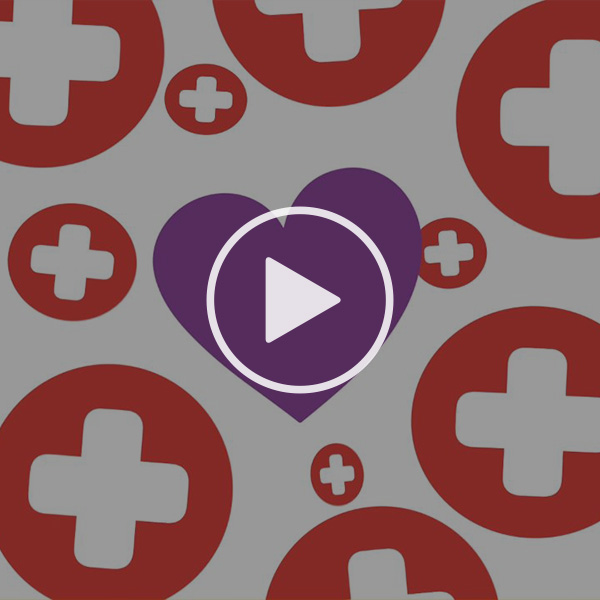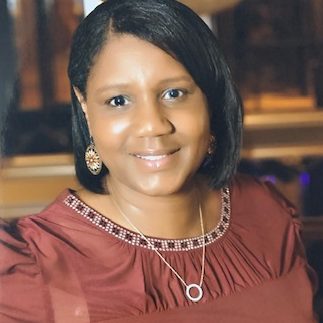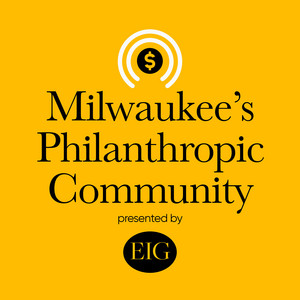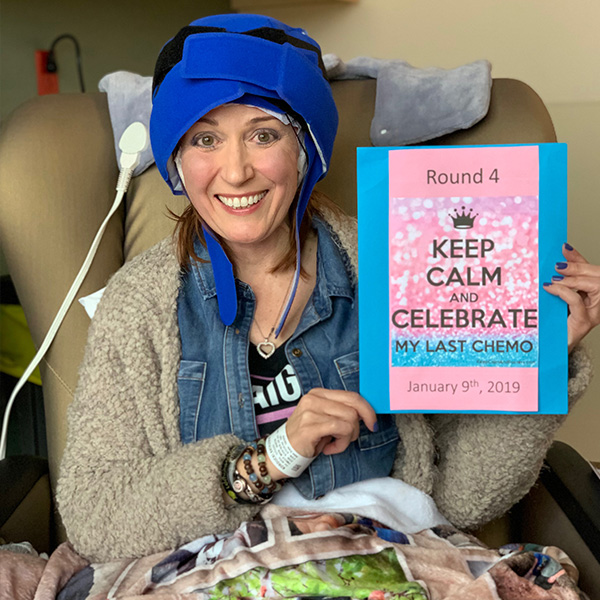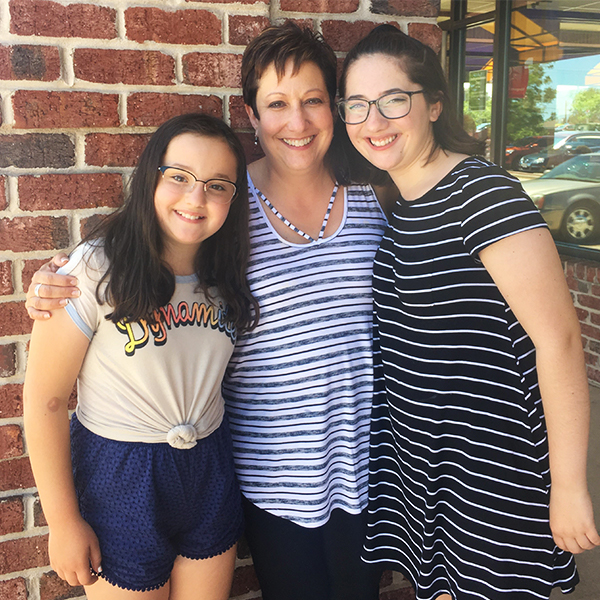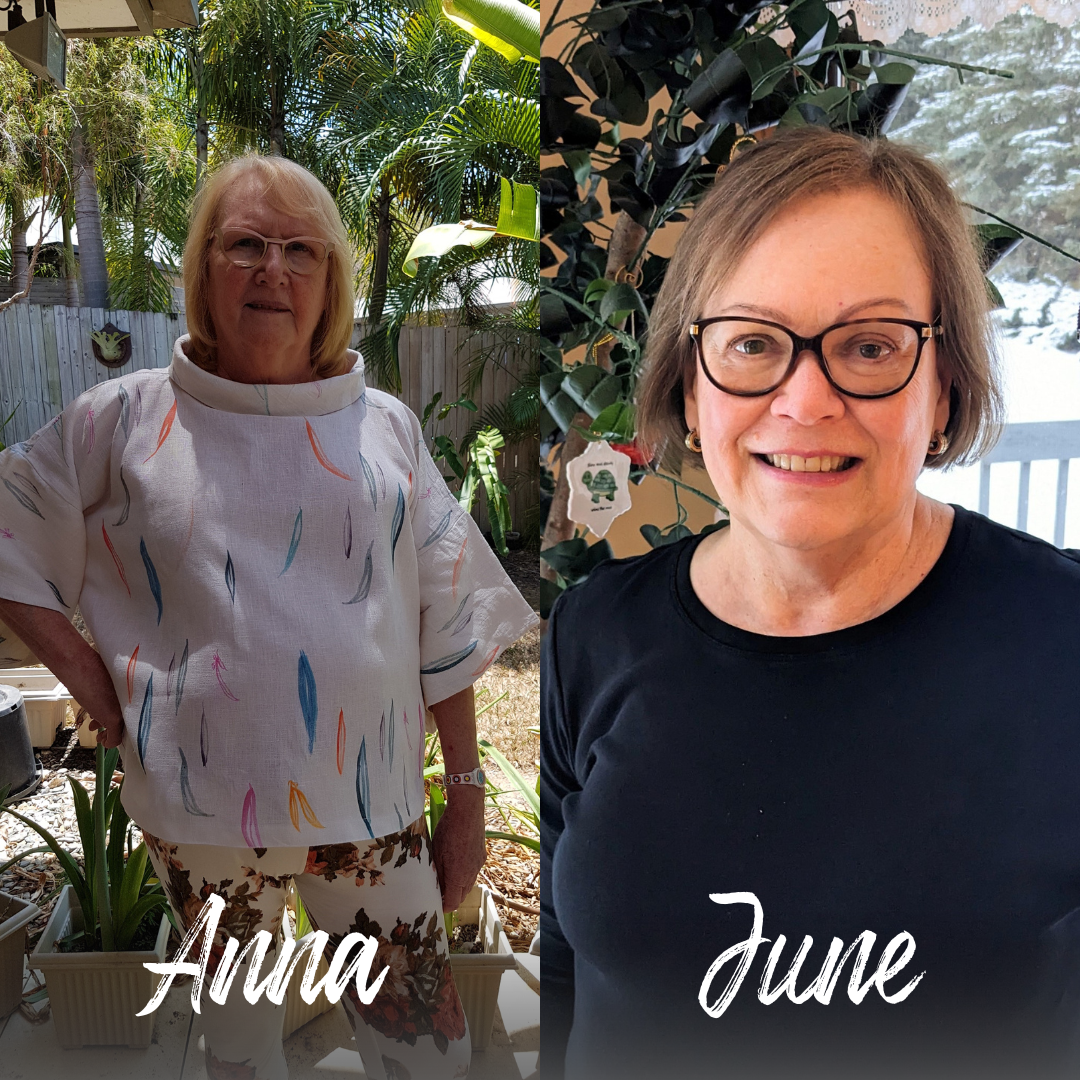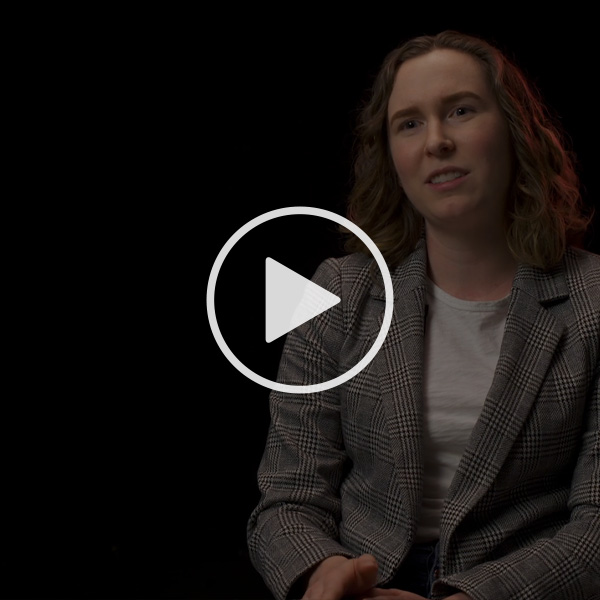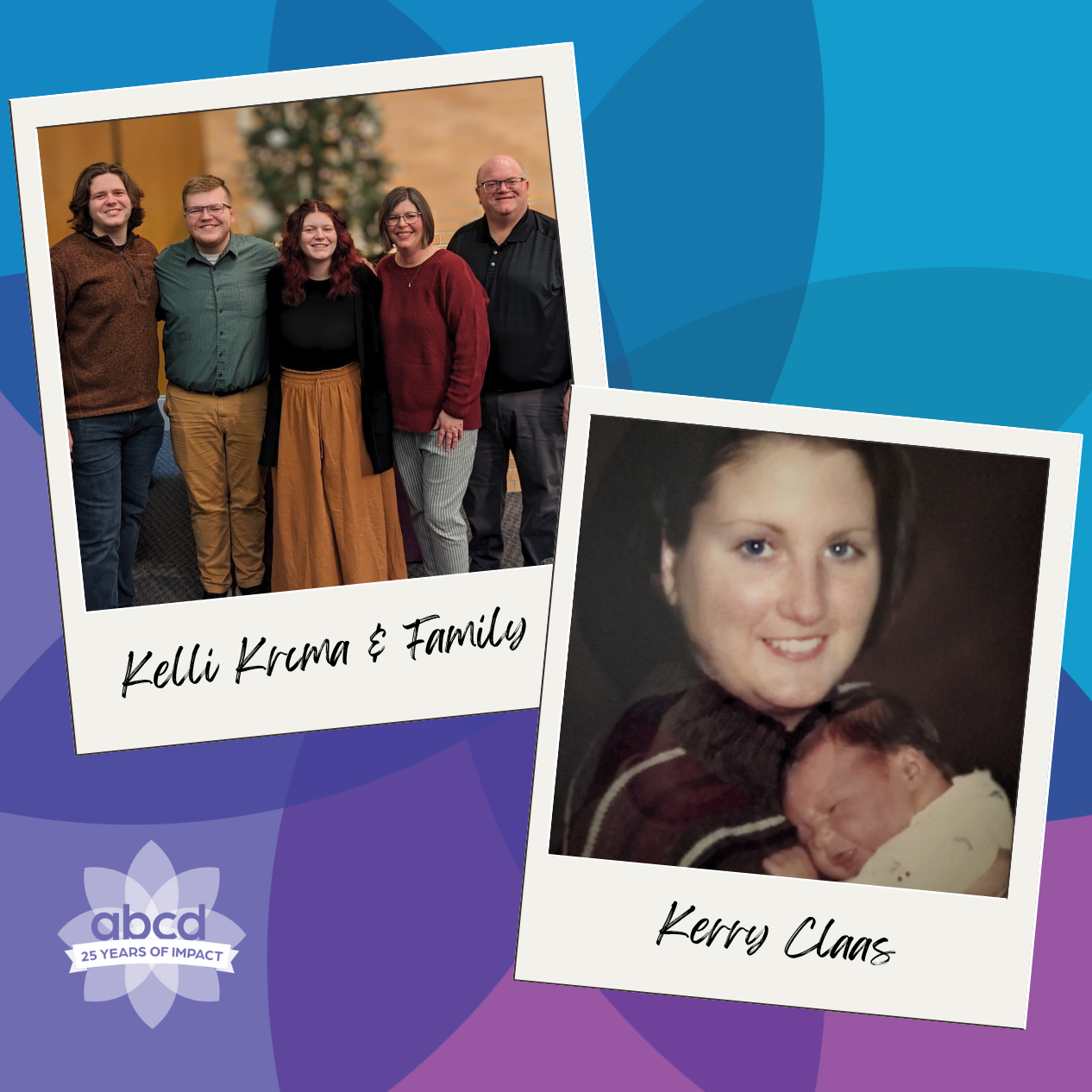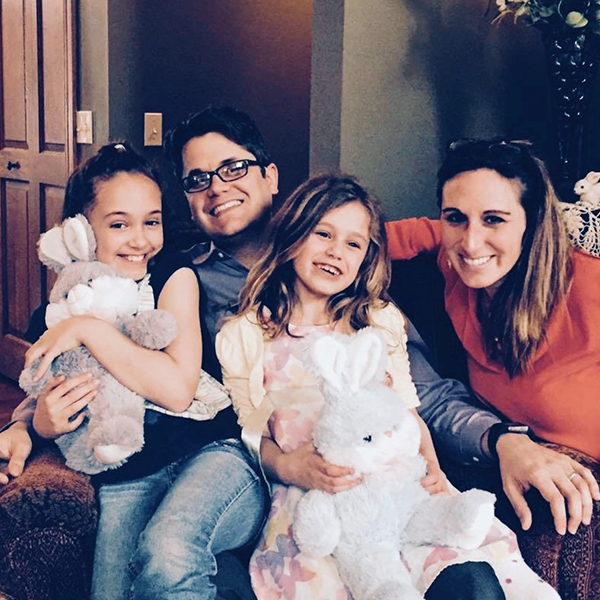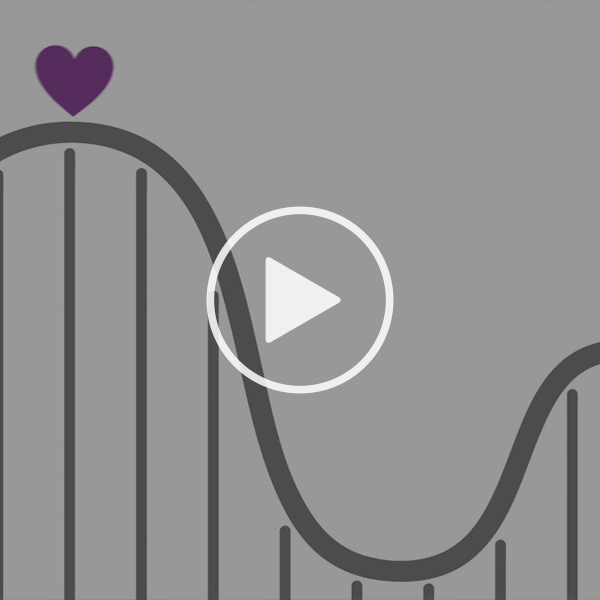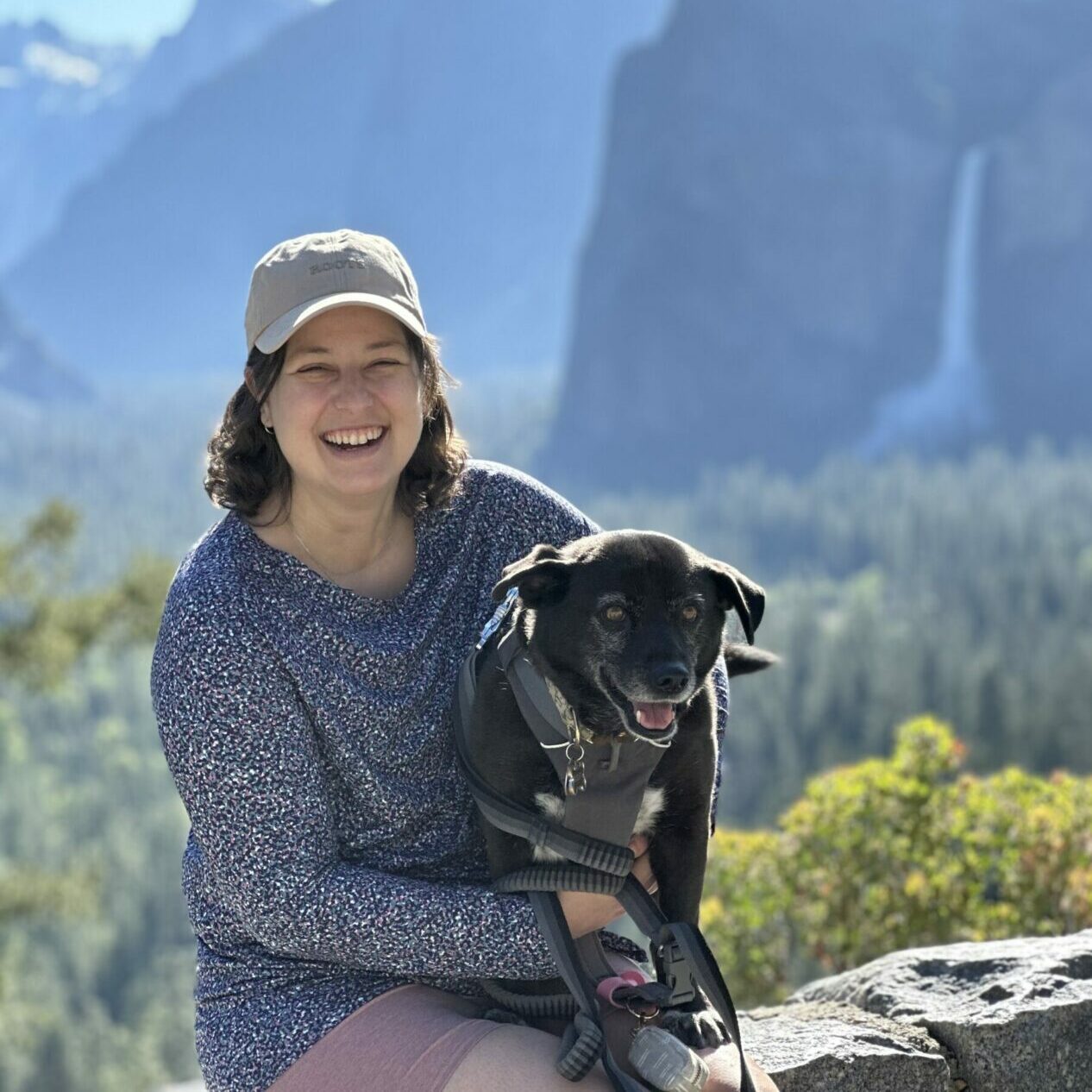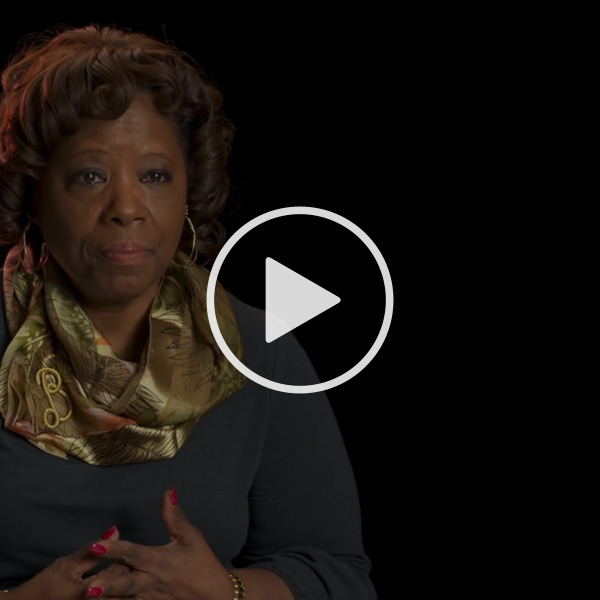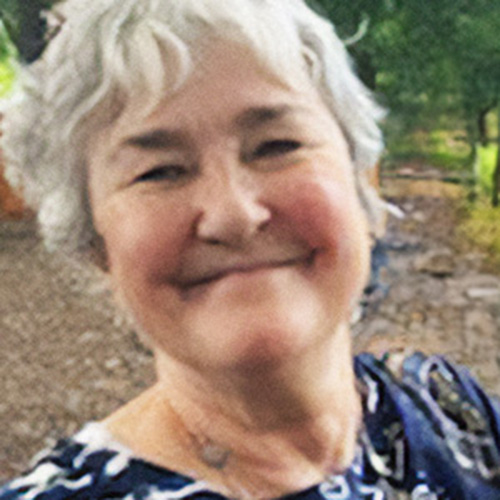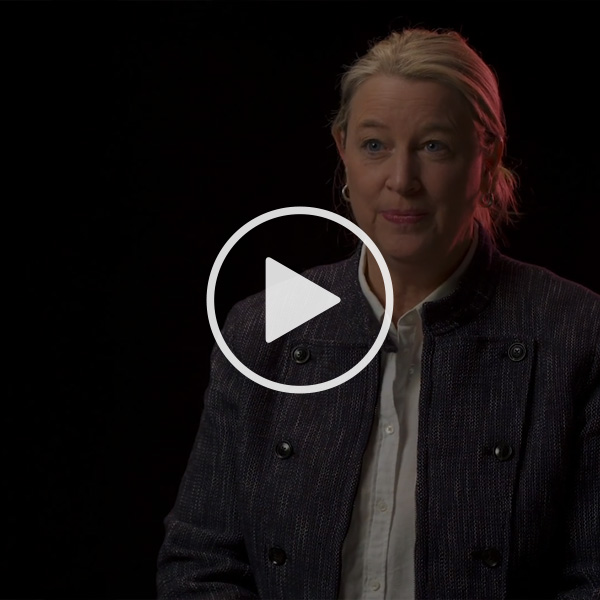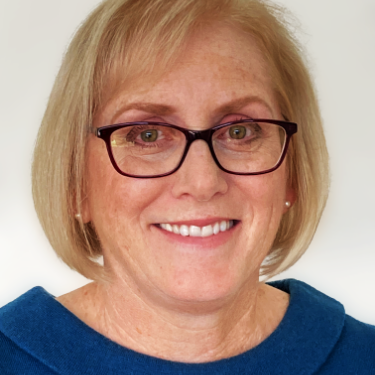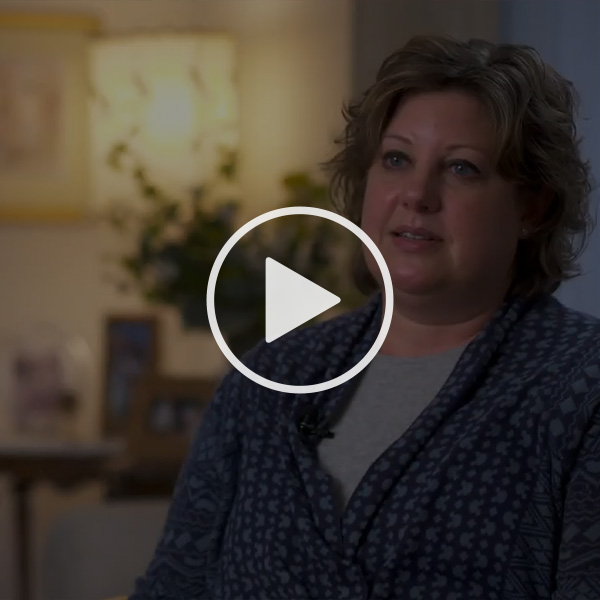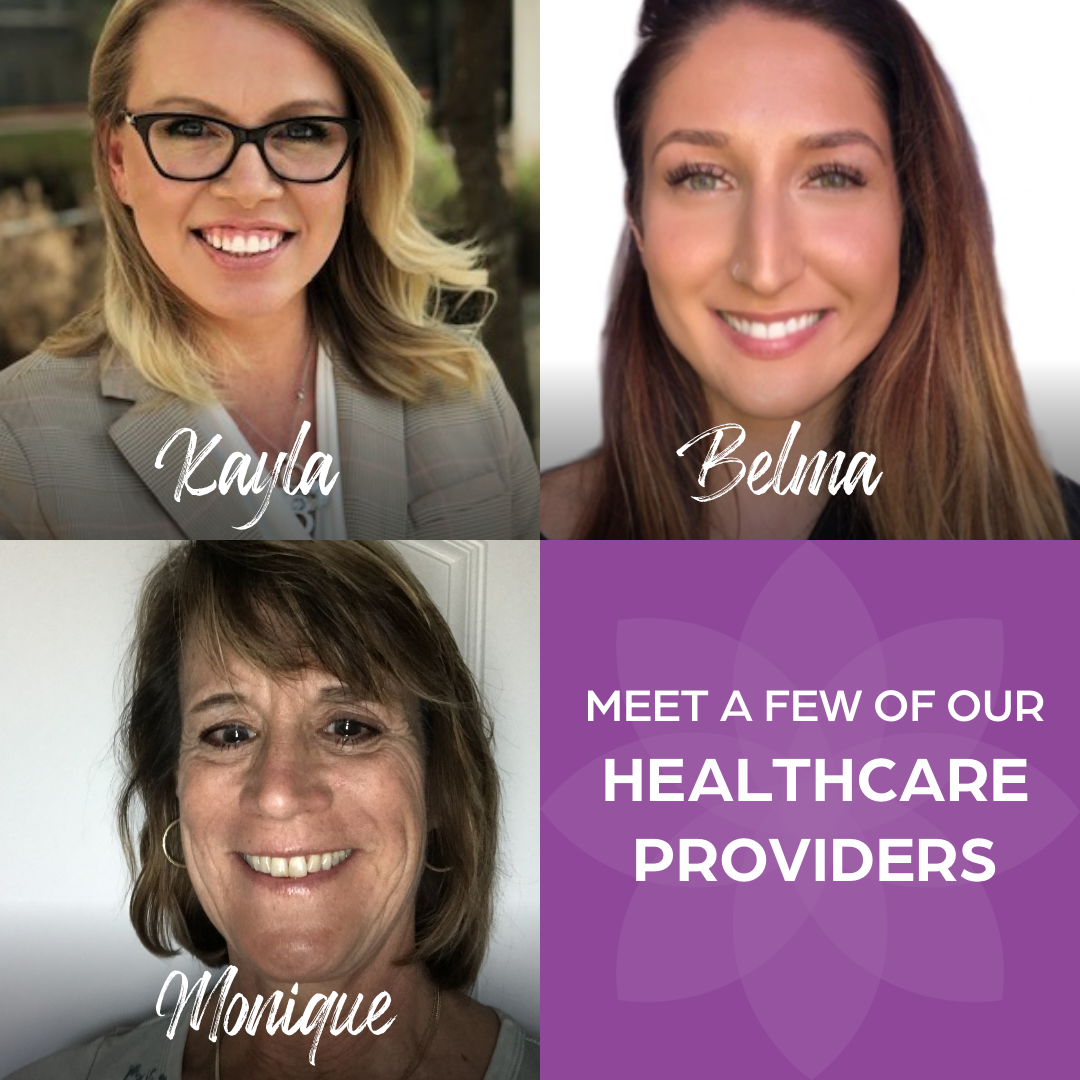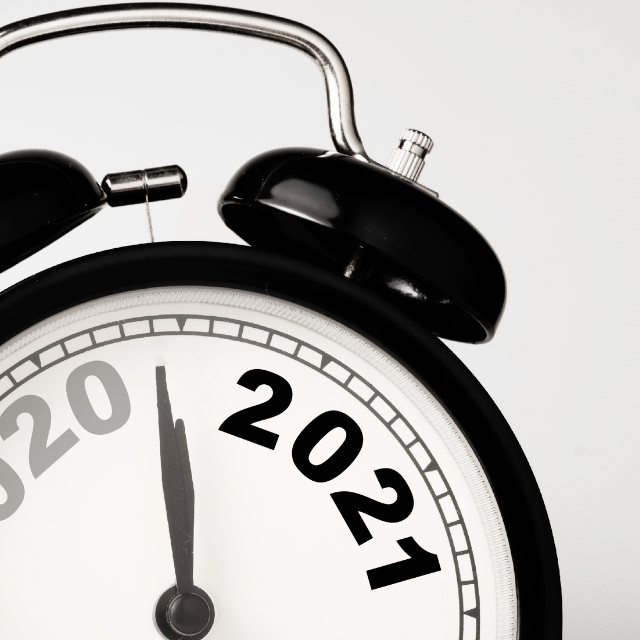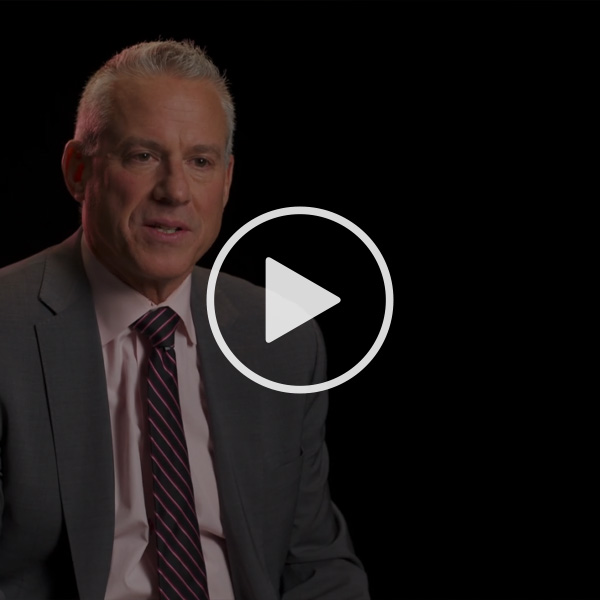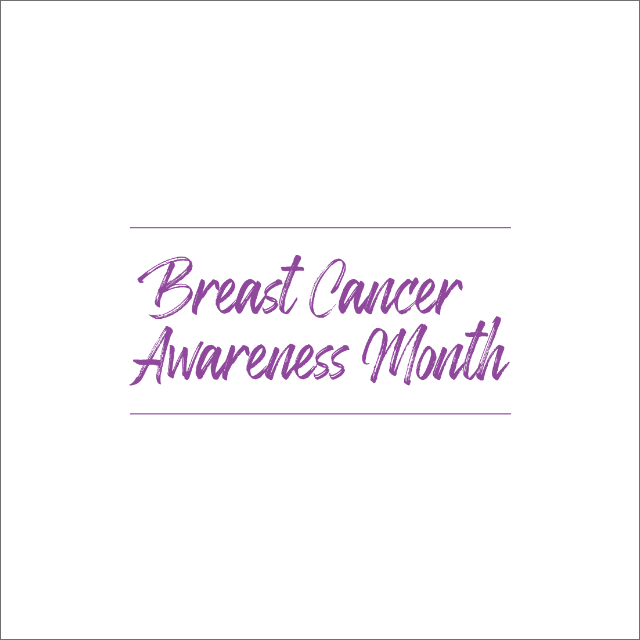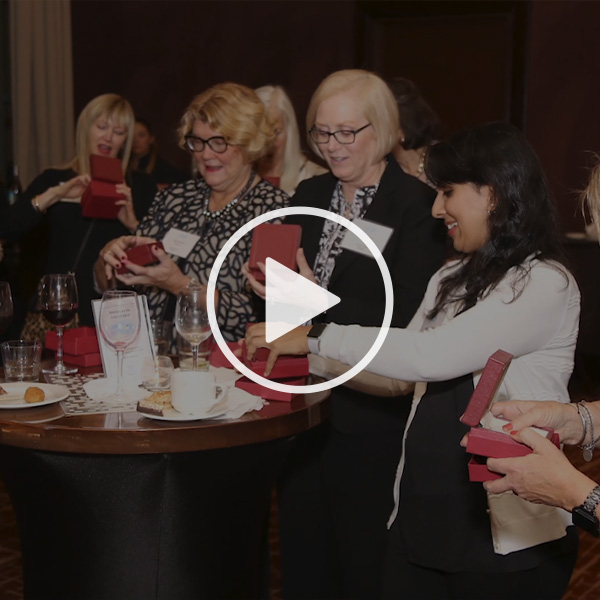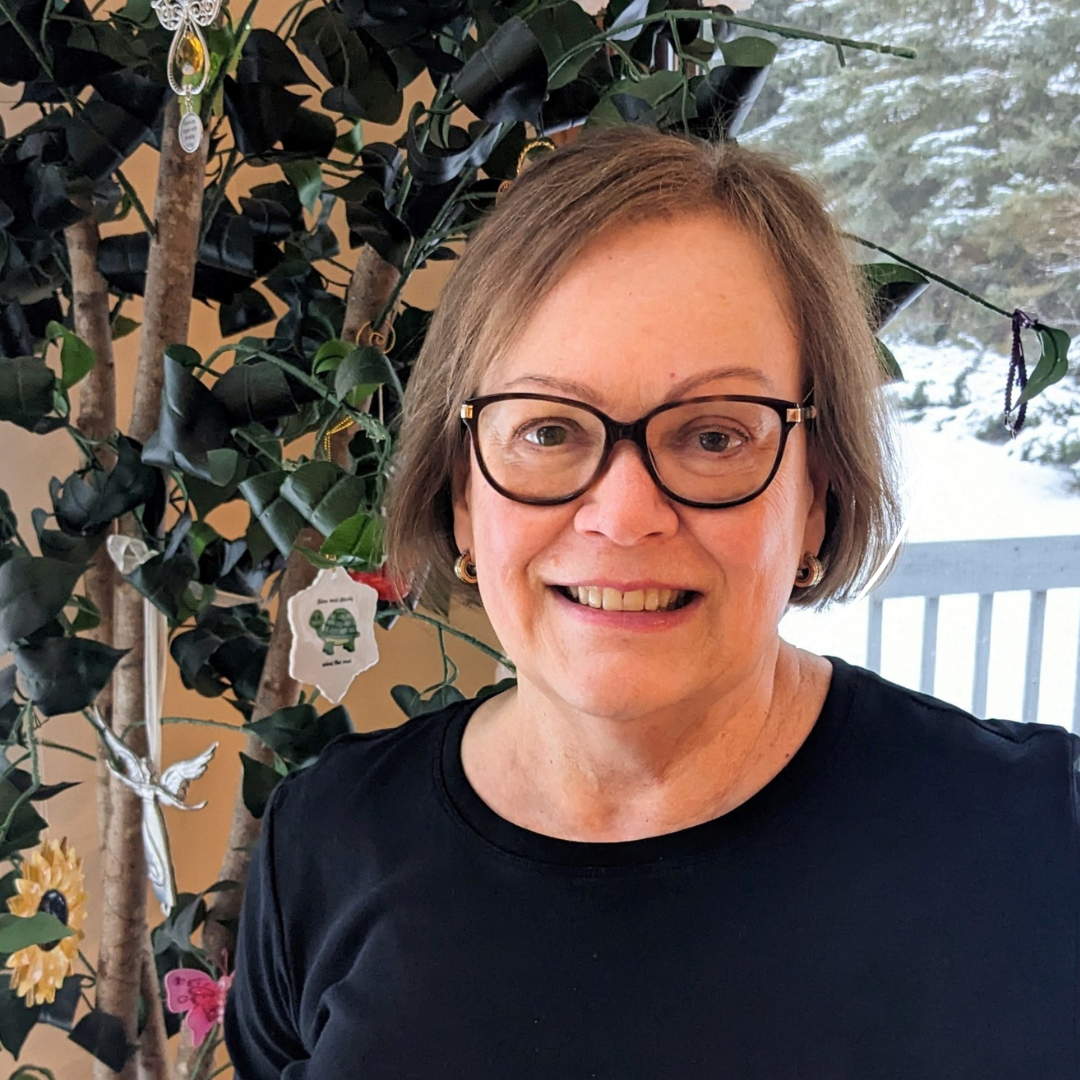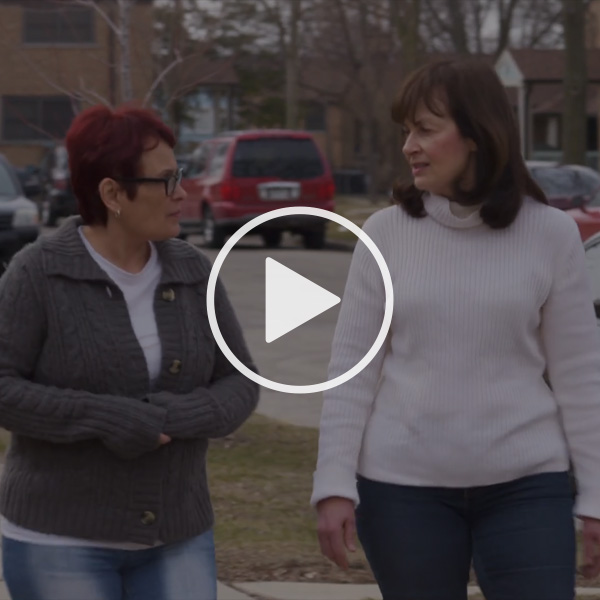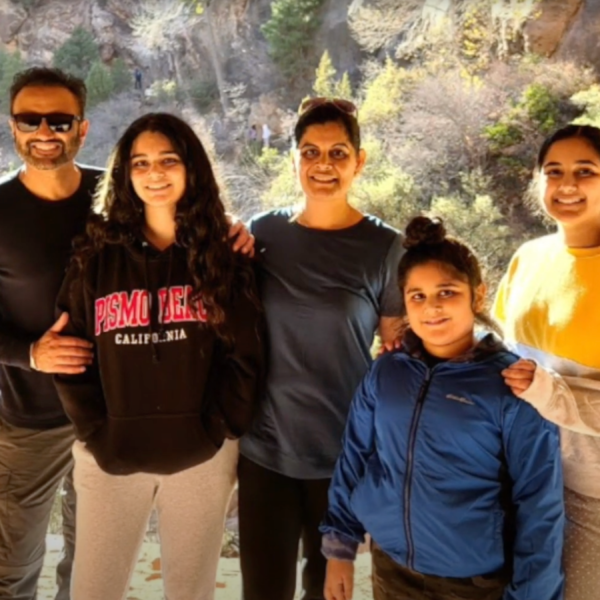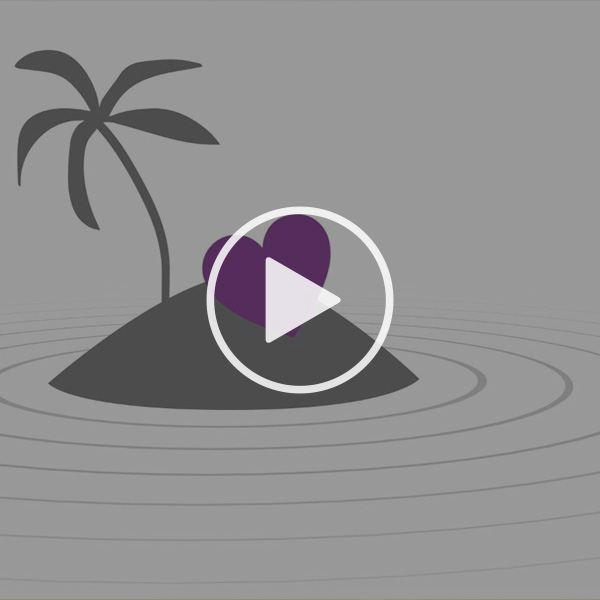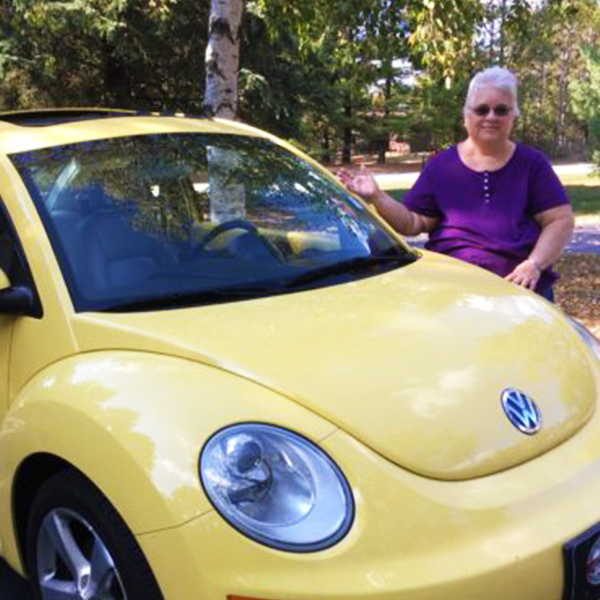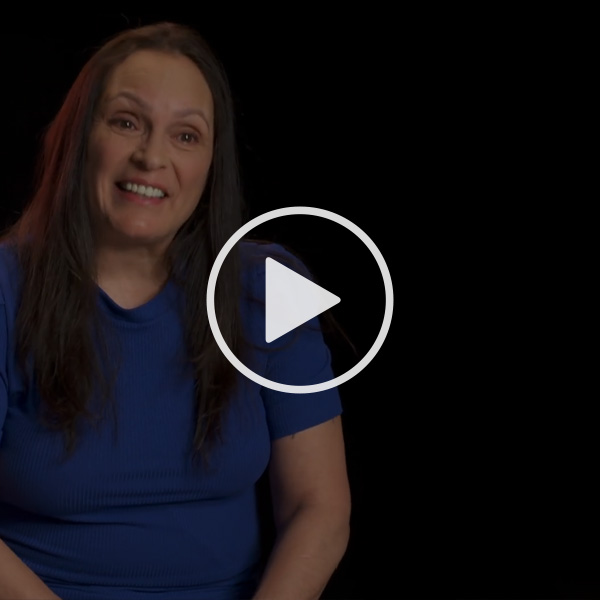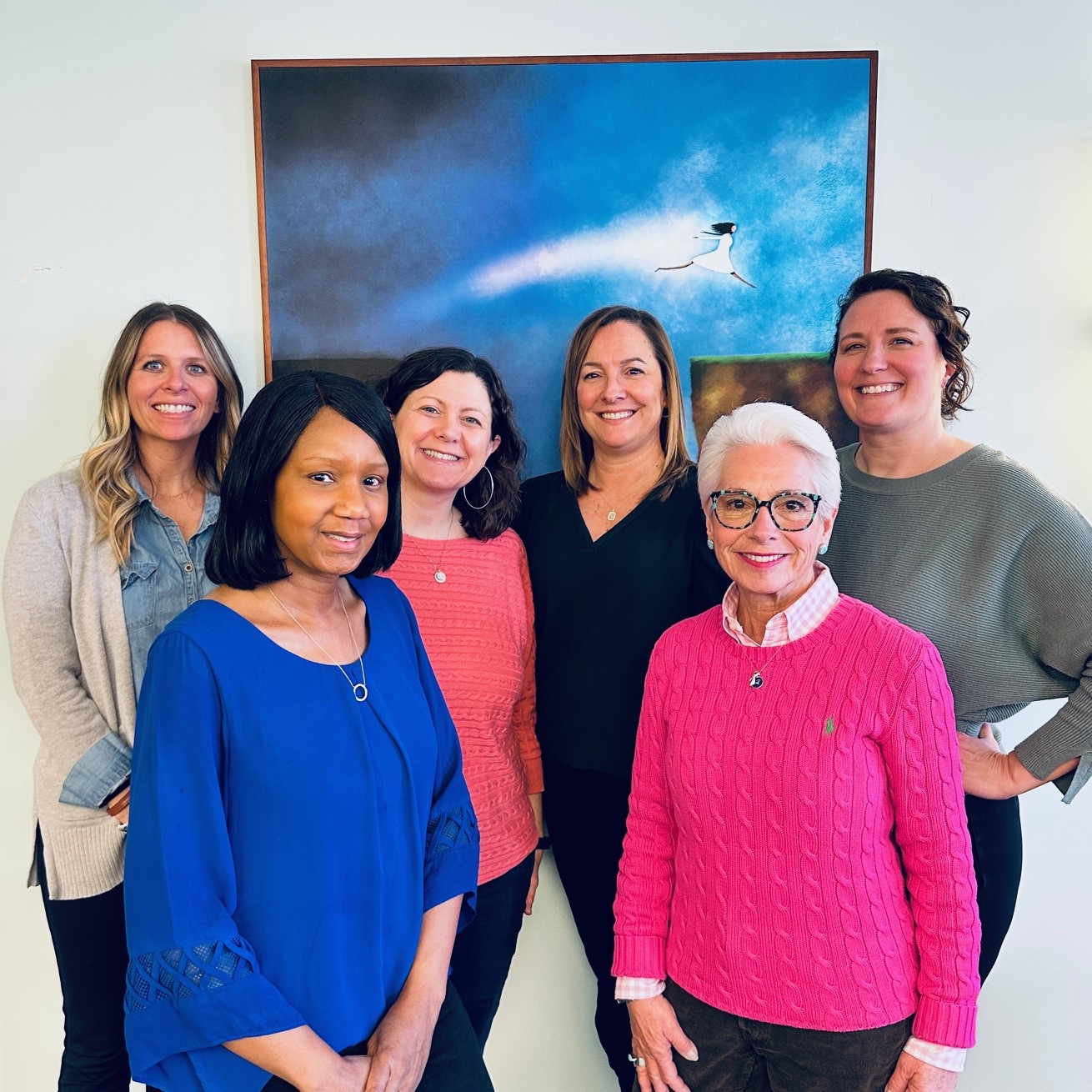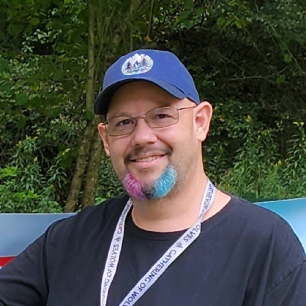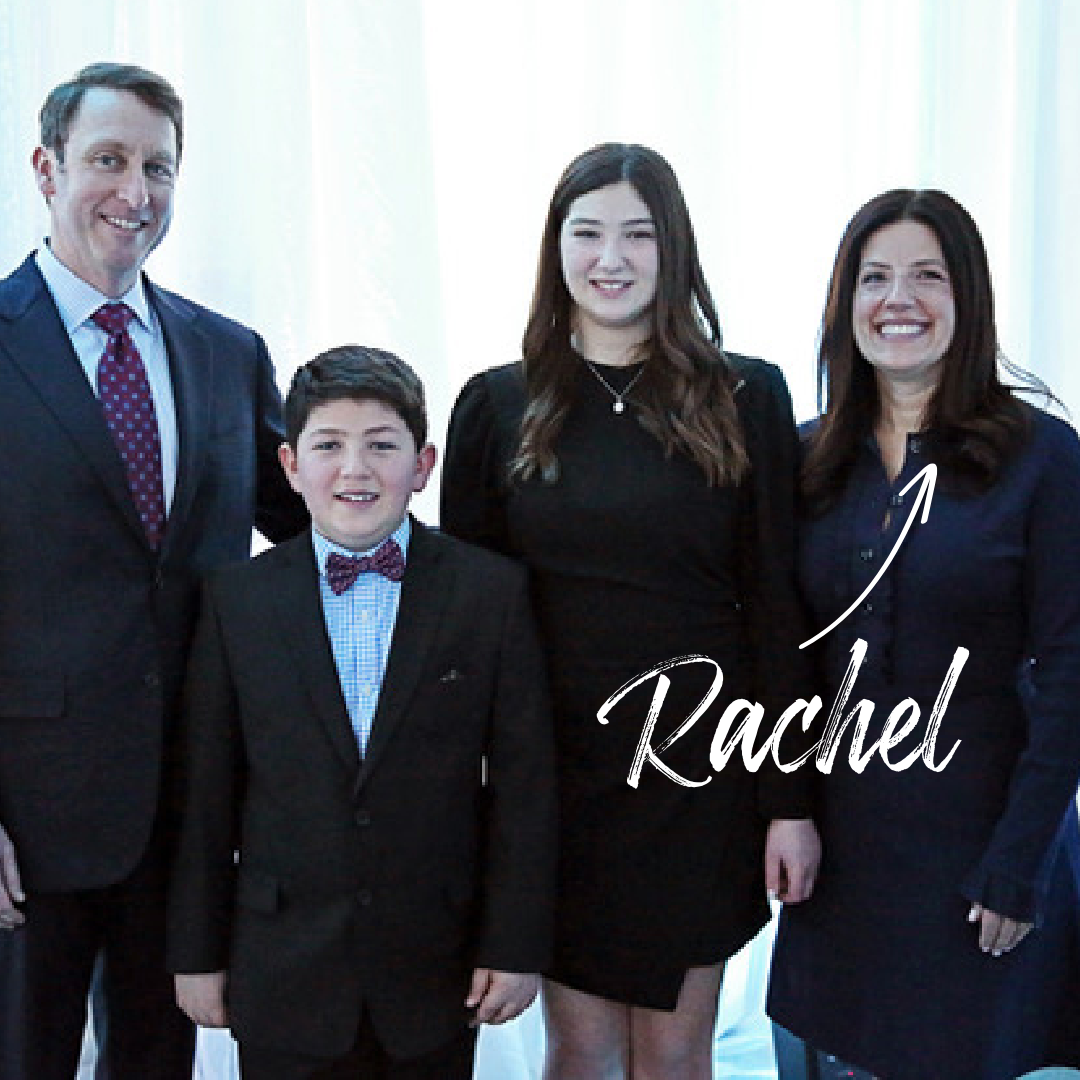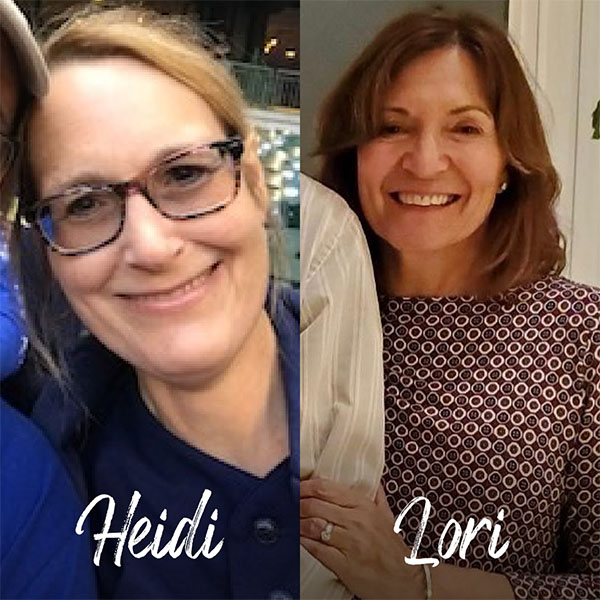
With a Mentor, You’re Never Alone
— By Gina Rich
March 17, 2022
When Lori Petitti found out she had breast cancer, she felt overwhelmed. “My doctor seemed to be in a rush to make me do surgery and treatment,” says Lori, who was diagnosed in 2010. “I had so many questions that they weren’t answering.”
As she processed the news, Lori attended a few meetings of a breast cancer patient support group. Before her diagnosis, Lori didn’t know anyone else who had the disease. Hearing from other women who were going through it made a huge difference. “It changed my perspective on everything,” she says. “And I knew that in the back of my mind, someday I wanted to give back.”
Her experience led her to become a breast cancer research advocate, focusing on the type she was diagnosed with, called lobular breast cancer. But she still wanted to do more. In 2016, while attending a research conference, Lori learned about ABCD: After Breast Cancer Diagnosis. The following year, she traveled from her hometown in California to complete ABCD’s Mentor training in Milwaukee.
Since 2017, Lori has mentored several Participants. She appreciates how ABCD’s customized, 1:1 matching enables Mentors and Participants to really get to know each other. “It’s easy to open up,” she says.
In January 2021, Lori got a call from ABCD asking if she could connect with a newly diagnosed patient. That person was Heidi Shupe.
Days earlier, when a nurse navigator had called to deliver the bad news, Heidi was already feeling isolated due to the pandemic. The nurse “started saying invasive lobular carcinoma and I thought, ‘I have no idea what that is,’” says Heidi. “Meanwhile I felt like my head was floating away from my body.” The nurse mentioned a support group but said it wasn’t meeting due to concerns about Covid-19, Heidi recalls.
One of Heidi’s friends, an oncology nurse, was familiar with ABCD because many of her patients were Participants and Mentors. She encouraged Heidi to check out the organization.
“ABCD really struck me because I had watched Melodie [Wilson Oldenburg] on TV for years,” says Heidi. “There are so many other organizations out there, but none of them had that one-to-one mentoring.”
She filled out ABCD’s online form requesting a Mentor. Within a few days, she was matched with Lori and the pair connected over the phone. “I felt very comfortable talking to her right away,” Heidi says. “She gets it.”
Saying What’s True
When someone is diagnosed with breast cancer, family, friends, and healthcare providers often jump in with encouragement and optimism. Heidi remembers the nurse navigator telling her to stay positive because she had “the good kind of cancer.” But the emotional reality of a diagnosis is complicated; upbeat messages don’t always resonate.
With a Mentor, “it’s okay to be angry or hurt or sad that you have cancer, because it sucks,” says Lori. “We know that you’ve just got to say what’s true and move on.”
And a Mentor’s support can extend beyond the early days of diagnosis and treatment into survivorship, when physical healing is complete but the emotional impact remains. Even though her family and friends are wonderfully supportive, socializing with people who haven’t had breast cancer can be difficult, Heidi says. “It’s not that I want any of them to have [breast cancer]. I just feel like I’m the only one out of all these people.”
With Lori’s encouragement, those feelings of loneliness have lessened, says Heidi. Mentors “definitely embody Melodie’s mission that no one should go through breast cancer alone.”
Lori is grateful for her connection with Heidi and the other Participants she mentors. Treatment for lobular breast cancer has advanced over the years, says Lori, and she’s learned a lot from those diagnosed after her.
Focusing on Today
Both Heidi and Lori work to raise awareness about ABCD so that more people who need emotional support can access it. Heidi shares information about ABCD through her family business, while Lori has continued her advocacy efforts.
“As a research advocate, I know that breast cancer can come back,” says Lori. “But I don’t dwell on it. I’m more interested in how I can live my life today, which is all I can control.”
Heidi agrees, recalling what Lori said to her about grappling with the unknown: “Don’t give it more power than it deserves.”
